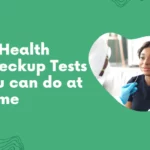Heart diseases are very prevalent in our environment. 21 million adults worldwide are living with heart failure.
The heart is a muscular pump that ensures that blood circulates around the systems of the body. The brain, kidney, and even the heart itself are among the first set of organs to be affected by shortage of blood.
This shows how vital the heart is to our existence. If the structure or function of the heart becomes distorted, everything that can possibly go wrong will.
Misconceptions surrounding cardiovascular diseases are dangerously misleading and need to be corrected. Heart conditions are already highly fatal by themselves that people should not be further miseducated.
Here are 20 busted myths about heart diseases;
Myth 1: Heart disease is not a young person’s problem
Fact: While it is true that most of the people affected by cardiovascular disorders are older, it does not mean that young people are not at all affected.
More people in their 20s and 30s are being diagnosed with diabetes and obesity now. These two conditions have been found to be risk factors for hypertension.
The lifestyle you adopt in your youthful years will sum up to determine the quality of your cardiovascular system as you age.
Myth 2: It is totally normal for older people to have high blood pressure
Fact–Regardless of your age, a high blood pressure is not a good sign. The moment your blood pressure is about 129/89 and tending towards 140/90, it is a problem that requires medical evaluation.
Blood should flow through your vessels at an optimal pressure that does not endanger your life. If you have noticed a recorded high blood pressure on two or more separate occasions, please see a doctor.
Myth 3: People with heart diseases should not exercise
Fact: There are exercises for people with heart diseases. Talk to your doctor to know what exercises you can carry out safely.
Myth 4: Hypertension can be cured
Fact: Hypertension means that blood is flowing through the blood vessel at a pressure. If this pressure is not controlled, it could lead to a host of cardiac and non-cardiac complications. This condition can be managed with the use of drugs like diuretics, calcium channel blockers, and other classes of anti-hypertensive drugs.
If you have been diagnosed with high blood pressure in the past but you were non-compliant with medications because of this false information, please get back on them. Also, consult a doctor to monitor your BP and ensure the drugs are effective.
Myth 5: Eating a high salt diet does not matter if you are already on anti-hypertensive drugs
Fact: Too much salt is bad for the body. It is advised that hypertensive people should reduce their salt intake as they comply with their drugs and other lifestyle adjustments.
We need about one teaspoon of salt per day and we get much of this as additives to most of the food that we consume, especially in processed food.
Myth 6: You can eat fatty food if you are on cholesterol-lowering drugs
Fact: You cannot binge on fatty food and think your drugs will protect you. Cholesterol-lowering drugs or Statin drugs will keep you LDL and HDL levels low. However, with constant intake of bad cholesterol, the excess lipid forms plaques on big vessels. This could culminate in a number of cardiovascular diseases.
Myth 7: Vitamin and dietary supplements can prevent heart diseases.
Fact: Vitamins are needed for normal body functioning and development. So many body processes require vitamins to be initiated and completed. However, consuming vitamins is not sufficient to prevent you from having heart diseases.
Myth 8: Once you start smoking, you are going to develop heart problems even if you quit it.
Fact: It is possible to reverse a substantial amount of the damages to the heart caused by smoking. No matter how long you have smoked in the past, you can stop it to prevent heart diseases. Quit smoking and decrease your risks of developing cardiovascular problems.
Myth 9: Heart diseases affect only men
Fact: Heart attacks affect more women than men. Women tend to present with atypical symptoms leading many to believe that women do not experience heart diseases as much as men do. A higher index of suspicion is needed to identify some heart diseases in women using symptoms only. This is why testing is very important.
Myth 10: It is not possible to avoid heart disease if I have a family history of heart diseases
Fact: Because your father, mother, and grandparents suffered from some type of cardiovascular situation does not mean you will definitely have it. The chances are higher than for the average person however with proper monitoring and regular testing, you can take measures to delay and even prevent it.
Myth 11: Heart failure means my heart has stop pumping
Fact–If a heart is failing, it implies that the heart is not pumping enough blood for the body or it is doing so at decreased pressure. It does not mean the heart has completely stopped working.
Myth 12: If I had hypertension, there would be signs
Fact: Hypertension shows no symptoms or signs. It damages the body silently. Sometimes, its first symptoms may be an irreversible emergency.
Myth 13: Any chest pain is a sign of heart attack
Fact–A heart attack is not always painful. It is sometimes \”silent.\” Part of your heart could be dying and it would show any sign. This silent chest pain is common in diabetic patients.
Myth 14: Untreated heart disorders go away with time
Fact–A heart condition is not a pimple, it would not resolve if you ignore it. Some heart disorders that affect children such as rheumatic heart diseases may cause heart failure in the future.
Myth 15: You will die once you have been diagnosed of heart disease
Fact: That someone is diagnosed with heart disease is not a death sentence. The prognosis is much more favorable if managed with drug therapy and lifestyle changes.
Myth 16: Heart failure and heart attack are the same things
Fact: They are two different concepts. Heart attack occurs when the blood supply to the heart is obstructed significantly while heart failure occurs when the heart muscle has become weak and can no longer pump blood with sufficient pressure.
Inculcate the habit of going for annual cardiovascular examinations and blood pressure measurements. It will do you plenty of good.
Believing and living by myths can be hurtful. Query every myth about heart disease that you’ve heard and disregard false information.
Book your heart health screening and ensure your heart keeps pumping.




